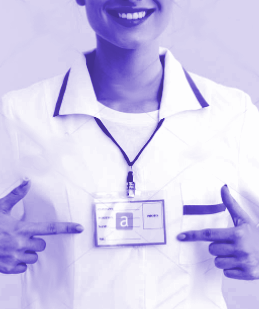Name tags backed by survey
 Experts say most doctors are missing a fundamental part of patient communication.
Experts say most doctors are missing a fundamental part of patient communication.
Only a quarter of doctors wear name badges, despite evidence that the majority of patients believe their doctors should do so, according to new research.
Also, around 75 per cent of inpatients are unable to name anyone when asked to recall the name of the physician in charge of their care.
“The very basic components of effective health care communication, particularly in hospitals, are lagging,” according to a new study led by Dr Benjamin Bravery from the Blacktown and Mount Druitt Hospital in Sydney.
“Patients’ names are documented from the moment of admission, printed on sticky labels, placed on wrist bands, attached to meal trays, printed on patient lists, and displayed and discussed in ward and team meetings.
“In contrast, doctors’ names usually appear only on faded ID swipe cards attached at the hip, or on crowded lanyards around the neck.
“This asymmetry in identification is just one symptom of the enormous information gulf separating patients and their doctors.”
The researchers ran a test where they introduced voluntary name badges for all interns and residents at their hospital.
Mid-year they collected data on how many interns and residents were wearing the badges – “adherence was a lowly 25%”.
The researchers then circulated a voluntary, anonymous electronic survey to all 108 interns and residents.
“Around one-third (34%) of the cohort took part in the survey, 80% of whom did not wear their name badge,” the experts say.
“Half of respondents reported that their ID swipe card contained their name and was sufficient.
“About one-fifth (22%) did not see a need to wear a name badge and a similar number mentioned that senior doctors not wearing badges discouraged them from wearing one.
“Not wanting members of the public or patients to know their name was a reason indicated by 16% of respondents. Free text responses mainly centred on forgetting to, or being annoyed by, attaching it each day,” they found.
The team suggested strategies to increase name badge adherence, including giving a brief lecture on the evidence-base underpinning good communication, coffee vouchers for doctors seen wearing their badges, and providing badges to new interns during orientation.
“As pressure on hospitals, and our clinical interactions, continues to grow, we must look for ways to support effective communication,” Dr Bravery and colleagues concluded.
“Alongside a clear introduction, easy-to-read name badges reinforce familiarity and contribute to rapport between patients and our (increasingly) busy workforce.”








 Print
Print